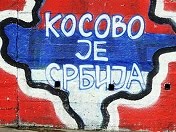German MEP Martin Schulz has confirmed he will seek to become parliament's next president.
It comes after the Socialist and Democrat group in parliament unanimously backed Schulz as its candidate for the presidency at a meeting on Thursday.
He is expected to take over as president from Polish MEP Jerzy Buzek after parliament votes on the presidency on 17 January 2012.
Following his nomination, Schulz issued a statement in which he promised that, if elected, he will "collaborate closely with the leaders of the different political groups and heads of delegation to strengthen the role of parliament and its powers of scrutiny over the European council".
On Thursday, he told this website that it was a "great honour" to be nominated to what he calls a "very prestigious" post.
He added, "It is early days, of course, and there is still to be an election in January. But, if I am elected I will seek to work with other group leaders in order to help reinforce this institution."
He also endorsed the deal between the EPP and S&D, saying that "as it is, the agreement stands".
An S&D source said, however, that "we live in a free democracy and if someone else wants to stand for election that is up to them".
EPP leader Joseph Daul recently also gave his blessing to the deal, saying he regarded Schulz's presidency as "almost automatic".
Schulz, a veteran deputy, will be seen by some as a controversial choice as president. He was famously likened to a "Nazi commandant" by Italian prime minister Silvio Berlusconi during a debate in parliament.
The agreement between parliament's two biggest groups, the S&D and the EPP, to split the presidency over the current mandate has been criticised by other groups, including ALDE and the Greens.
ALDE deputy Sarah Ludford recently told this website that the "stitch-up" between the two groups was undemocratic.
Reaction to Schulz's nomination from other senior MEPs was swift.
Tim Kirkhope, deputy leader of the ECR, said, "The ECR will look at all the candidates who declare for this important role and will give support only to the candidate who best reflects the group's priorities of reform and less bureaucracy in the EU institutions including parliament."
UKIP leader Nigel Farage said, "The snarling angry face of Martin Schulz as European parliament president will be good for the eurosceptic cause."
Marta Andreasen, another UKIP member, said, "Shultz is known for his intolerance and often derisory language to all those that don't share his views."

























Niciun comentariu :
Trimiteți un comentariu